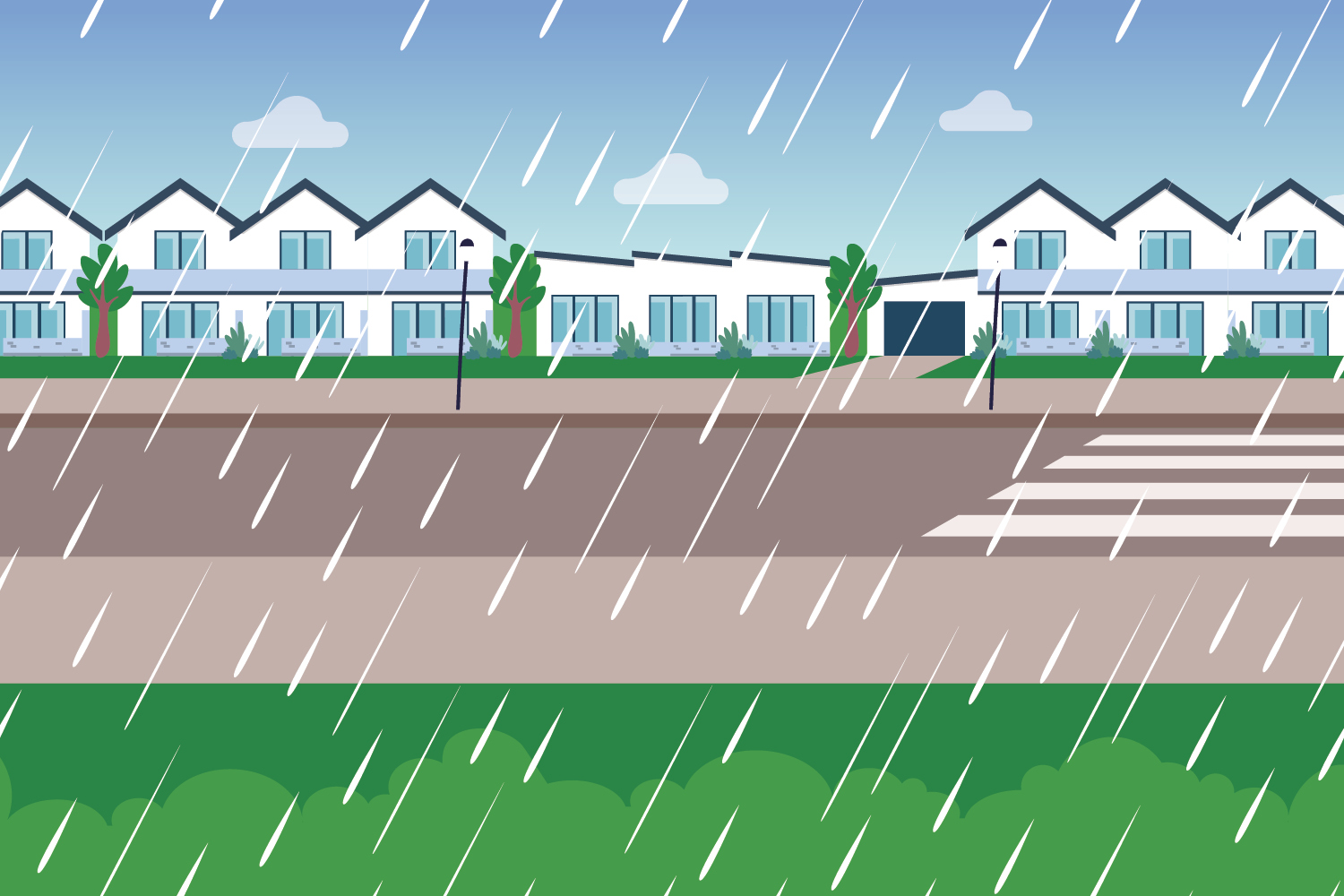In the early stages of neighbourhood development, Oranga’s stormwater design team pioneered an innovative stormwater system using what’s known as an “offset mitigation approach.” Prior to implementation, the team investigated the main water pollutants in the area, and put forward a strategy to achieve better stormwater treatment outcomes with a Stormwater Management Plan (SMP).
Before implementation, the Oranga Development team researched various water treatment options, including rain gardens. Rain gardens have been popular in recent times, in part due to the perception that they are more economical to construct, operate and maintain. However, maintenance costs are often high, and the gardens are not always well maintained.
In collaboration with local iwi and Healthy Waters, the design team researched more sustainable options. Working closely with Mana Whenua, the Oranga Development team embraced the concept of ‘Te mana o te Wai’, which is all about restoring and preserving the balance between water, the wider environment and the community.
Offset mitigation was proposed as the primary stormwater management approach to improve the quality of stormwater discharge in the area. An offset mitigation approach was developed that would prioritise the treatment of existing public roads as opposed to the private accessways and driveways.
The design team completed a high-level analysis of contaminant generating areas within the Oranga catchment. The analysis included assessing projected occupancy times for vehicles over 1m² of impervious surface within the designated catchment. The design team “locked down” suitable catchments for offsetting against superlots which would form part of the Stormwater Management Plan.
The proposed Oranga Development solution included a total of 21 water quality treatment devices treating a public road surface area of approximately 3.4 hectares. The offset approach method has been proven to be more effective than treating the existing private areas as the high trafficked roads contain substantially more pollutants. This approach also goes beyond the Kāinga Ora development areas for Oranga and benefits private properties in the neighbourhood. The ultimate outcome is a sustainable increase in the overall quality of water.
Closeclose
